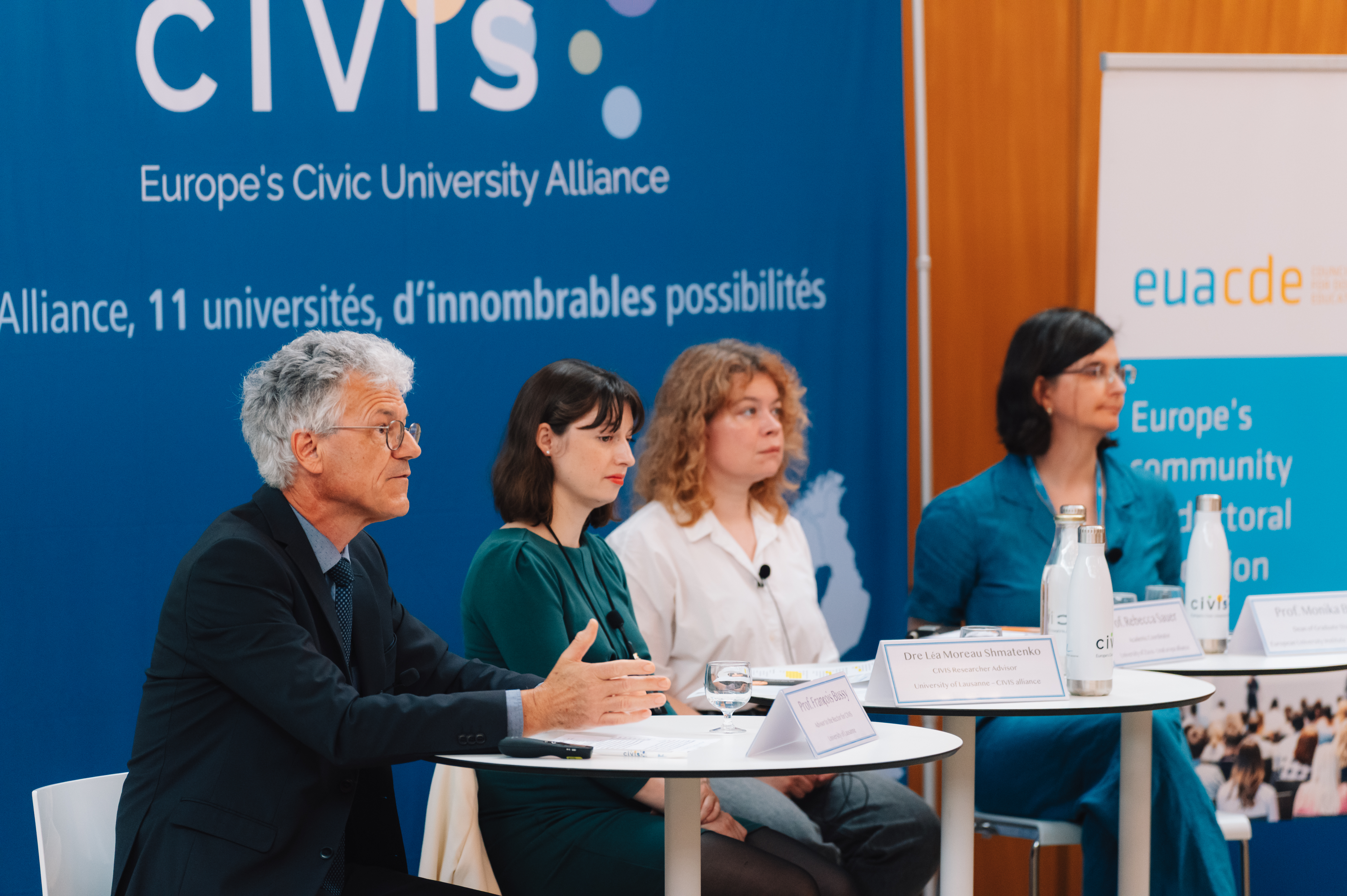
This year's EUA-CDE meeting reflected on two decades of progress and achievements in doctoral education, while looking ahead to new horizons in an ever-evolving society. Topics included the impact of current geopolitical developments on research, with particular attention to knowledge security and dual-use research in an increasingly complex world.
Conversations also highlighted the importance of doctoral programmes for Europe’s economic and technological competitiveness, touching on how policy changes such as institutional autonomy and research assessment reforms are shaping the future landscape of doctoral education.
Training in research is not just about individual achievement - it is about making a difference together. Doctoral education equips researchers with the critical thinking skills, creativity and expertise needed to tackle today’s most pressing challenges. Whether in addressing the climate crisis, advancing medical breakthroughs, or shaping public policy, PhD candidates play an essential role in producing the knowledge and solutions that the world depends on", stated Frédéric Herman, the Rector of the University of Lausanne.
The University of Lausanne hosted a round table attended by over a hundred participants to discuss European doctoral collaborations. Three speakers from university alliances active in this field shared their experiences:
- Prof. Monika Baar, European University Institute (EUI), representing CIVICA Alliance
- Prof. Rebbeca Sauer, University of Zurich (UZH), representing UNA EUROPA
- Dre Léa Moreau, University of Lausanne (UNIL), representing CIVIS Alliance
The discussion, moderated by Prof. François Bussy, focused on several key questions:
- What flagship initiatives have been implemented to support doctoral collaboration within these alliances?
- How can a joint doctoral programme be defined beyond bilateral co-supervision agreements, and what legal barriers need to be overcome?
- What funding model could ensure the sustainability of such programmes at the European level?
- What added value do joint programmes offer to the doctoral candidates involved?
At the intersection of academic, institutional, and political issues, this discussion highlighted the structuring role that European alliances can play in the internationalization of doctoral studies, resource sharing, and the broadening of training pathways for early-career researchers.
Latest Highlights:
Stockholm Declaration on Chemistry for the Future, launched during the Nobel Symposium
University of Salzburg founds international Stefan Zweig centre
The “Health City of the Community of Madrid” coming to life with UAM
700 books for the library of the Université Amadou-Mahtar M'Bow in Dakar, offered by ULB
Social Media reshapes news consumption in Eastern Europe, new study finds
